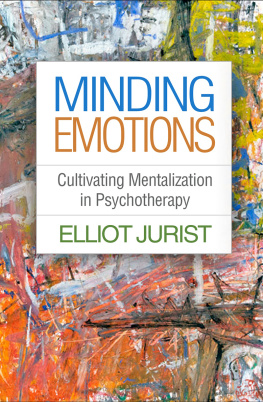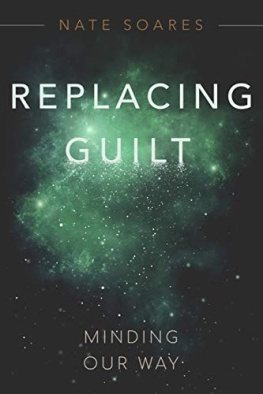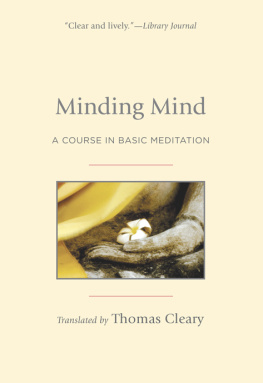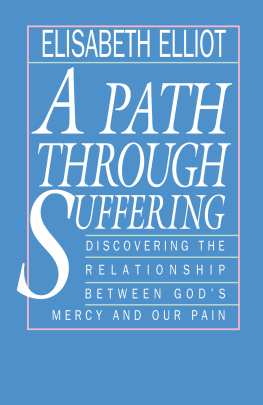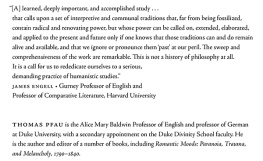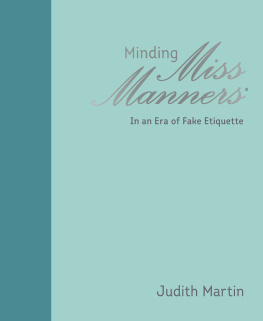Elliot Jurist - Minding Emotions
Here you can read online Elliot Jurist - Minding Emotions full text of the book (entire story) in english for free. Download pdf and epub, get meaning, cover and reviews about this ebook. publisher: The Guilford Press, genre: Art. Description of the work, (preface) as well as reviews are available. Best literature library LitArk.com created for fans of good reading and offers a wide selection of genres:
Romance novel
Science fiction
Adventure
Detective
Science
History
Home and family
Prose
Art
Politics
Computer
Non-fiction
Religion
Business
Children
Humor
Choose a favorite category and find really read worthwhile books. Enjoy immersion in the world of imagination, feel the emotions of the characters or learn something new for yourself, make an fascinating discovery.
- Book:Minding Emotions
- Author:
- Publisher:The Guilford Press
- Genre:
- Rating:5 / 5
- Favourites:Add to favourites
- Your mark:
- 100
- 1
- 2
- 3
- 4
- 5
Minding Emotions: summary, description and annotation
We offer to read an annotation, description, summary or preface (depends on what the author of the book "Minding Emotions" wrote himself). If you haven't found the necessary information about the book — write in the comments, we will try to find it.
Minding Emotions — read online for free the complete book (whole text) full work
Below is the text of the book, divided by pages. System saving the place of the last page read, allows you to conveniently read the book "Minding Emotions" online for free, without having to search again every time where you left off. Put a bookmark, and you can go to the page where you finished reading at any time.
Font size:
Interval:
Bookmark:
Elliot Jurist,Series Editor
Books in this series aim to bridge the work of researchers and the work of clinicians. They reflect the current empirical findings and state of the art in psychoanalysis and psychodynamic treatment. They are written to be practical and relevant to clinicians.
Attachment and Psychoanalysis: Theory, Research, and Clinical Implications
Morris N. Eagle
Minding Emotions: Cultivating Mentalization in Psychotherapy
Elliot Jurist
MINDING EMOTIONS
Cultivating Mentalization in Psychotherapy
ELLIOT JURIST

T HE G UILFORD P RESS
New York London
Epub Edition ISBN: 9781462535064; Kindle Edition ISBN: 9781462535040
Copyright 2018 The Guilford Press
A Division of Guilford Publications, Inc.
370 Seventh Avenue, Suite 1200, New York, NY 10001
www.guilford.com
Paperback edition 2020
All rights reserved
Except as indicated, no part of this book may be reproduced, translated, stored in a retrieval system, or transmitted, in any form or by any means, electronic, mechanical, photocopying, microfilming, recording, or otherwise, without written permission from the publisher.
Last digit is print number: 9 8 7 6 5 4 3 2
LIMITED DUPLICATION LICENSE
These materials are intended for use only by qualified mental health professionals.
The publisher grants to individual purchasers of this book nonassignable permission to reproduce the . This license is limited to you, the individual purchaser, for personal use or use with individual clients. This license does not grant the right to reproduce this material for resale, redistribution, electronic display, or any other purposes (including but not limited to books, pamphlets, articles, video- or audiotapes, blogs, file-sharing sites, Internet or intranet sites, and handouts or slides for lectures, workshops, webinars, or therapy groups, whether or not a fee is charged). Permission to reproduce this material for these and any other purposes must be obtained in writing from the Permissions Department of Guilford Publications.
The author has checked with sources believed to be reliable in his efforts to provide information that is complete and generally in accord with the standards of practice that are accepted at the time of publication. However, in view of the possibility of human error or changes in behavioral, mental health, or medical sciences, neither the author, nor the editors and publisher, nor any other party who has been involved in the preparation or publication of this work warrants that the information contained herein is in every respect accurate or complete, and they are not responsible for any errors or omissions or the results obtained from the use of such information. Readers are encouraged to confirm the information contained in this book with other sources.
Library of Congress Cataloging-in-Publication Data
Names: Jurist, Elliot L., 1953 author.
Title: Minding emotions : cultivating mentalization in psychotherapy / Elliot Jurist.
Description: New York : Guilford Press, [2018] | Series: Psychoanalysis and psychological science | Includes bibliographical references and index.
Identifiers: LCCN 2017037597 | ISBN 9781462534999 (hardcover) | ISBN 9781462542918 (paperback)
Subjects: LCSH: Emotions. | Psychotherapy. | Mentalization Based Therapy.
Classification: LCC RC489.E45 .J87 2018 | DDC 616.89/14dc23
LC record available at https://lccn.loc.gov/2017037597
For Rebecca, Julia, and Joshua
so much
Elliot Jurist, PhD, is Professor of Psychology and Philosophy at The Graduate Center, The City University of New York, where he served as Director of the Clinical Psychology Doctoral Program from 2004 to 2013. His research focuses on mentalization and the role of emotions in psychotherapy. Dr. Jurist is the coauthor of Affect Regulation, Mentalization, and the Development of the Self; and coeditor of Mind to Mind: Infant Research, Neuroscience, and Psychoanalysis. He is also the editor of the Guilford book series Psychoanalysis and Psychological Science and the editor of Psychoanalytic Psychology, the journal of Division 39 (Psychoanalysis) of the American Psychological Association. He is a recipient of the Scholarship Award from Division 39, among other honors.
A s I write this preface, I am imagining a kinship with the many authors who feel the weight of having begun their work at one point in time and ending in what seems like a completely different era. Words do not come easily to register the gruesomeness of this timethe utter stupidity, the transparent crudeness, the revolting gloating, the orchestration and threat of violence, and the steady parade of dishonesty and lies that define our president and the current regime in the United States of America.
Can a book on emotions overlook this? Is it possible to rise above outragethe shock and anger at the enormous, unnecessary suffering of our fellow human beings who, as immigrants and refugees, risk being literally without a home? Is it possible to push aside the profound sense of mourningthe enveloping sadness that democracy, however imperfectly realized, could turn out to be so vulnerable? No, no, and no.
There is good reason to fear the unleashing of emotions and good reason to believe that we need to tend to them now more than ever. This book welcomes emotions in all of their complexityhow they manifest themselves (for better and worse) in everyday life, and especially in psychotherapy, and how we might cultivate their use without overestimating our ability to fathom them. The project is perhaps best characterized by the aspiration to do things with emotions. I begin by recognizing a category of not knowing what we feel, what I term aporetic emotions, and I end by featuring the idea of mentalized affectivity, the capacity to reflect on emotions in light of autobiographical memory. The book is interdisciplinary in scope, mixing theory, research, clinical work, and autobiographical memoiran attempt to render psychoanalytic ideas relevant for the present and to thrive more broadly into the future. Along the way, I express reservations about current notions of emotional intelligence and emotion regulation, both of which, perhaps not by intention but by consequence, serve to reward the privileged. I am dubious of our capacity to control our emotions, and especially wish to reject the miserable assumption that unregulated emotions are, by definition, undesirable and unhealthy.
A crucial argument that I make in is that mentalized affectivity defines what makes psychotherapy work, and that all psychotherapy can be construed as an attempt to improve communication. Communication is an evolutionary concept, akin to other biological instincts, and at the same time is strongly influenced and informed by culture. It has a distinct connotation from the hortatory, everyday sense of the term. Ultimately, I propose that communication in psychotherapy relies on epistemic trust, epistemic circumspection, and truthfulness. If truthfulness motivates and brings the therapeutic process to fruition, the implications of life outside of and beyond therapy must be at stake, hence the inescapability that psychotherapy must be implicated in our current political morass.
Can the institution of psychotherapy survive in a culture where truthfulness is not valued and perhaps coded as a loser strategy, a waste of time that could be otherwise wasted? It remains to be seen. It also remains to be seen whether the institution of psychotherapy might rejuvenate itself, refusing the conceit that truthfulness is a value of private life alone. My hope in any case is to support the attempt to rethink and reimagine psychotherapy as a place to know what one feels and to live with the consequences (which in no way is meant to connote passivity).
Next pageFont size:
Interval:
Bookmark:
Similar books «Minding Emotions»
Look at similar books to Minding Emotions. We have selected literature similar in name and meaning in the hope of providing readers with more options to find new, interesting, not yet read works.
Discussion, reviews of the book Minding Emotions and just readers' own opinions. Leave your comments, write what you think about the work, its meaning or the main characters. Specify what exactly you liked and what you didn't like, and why you think so.

